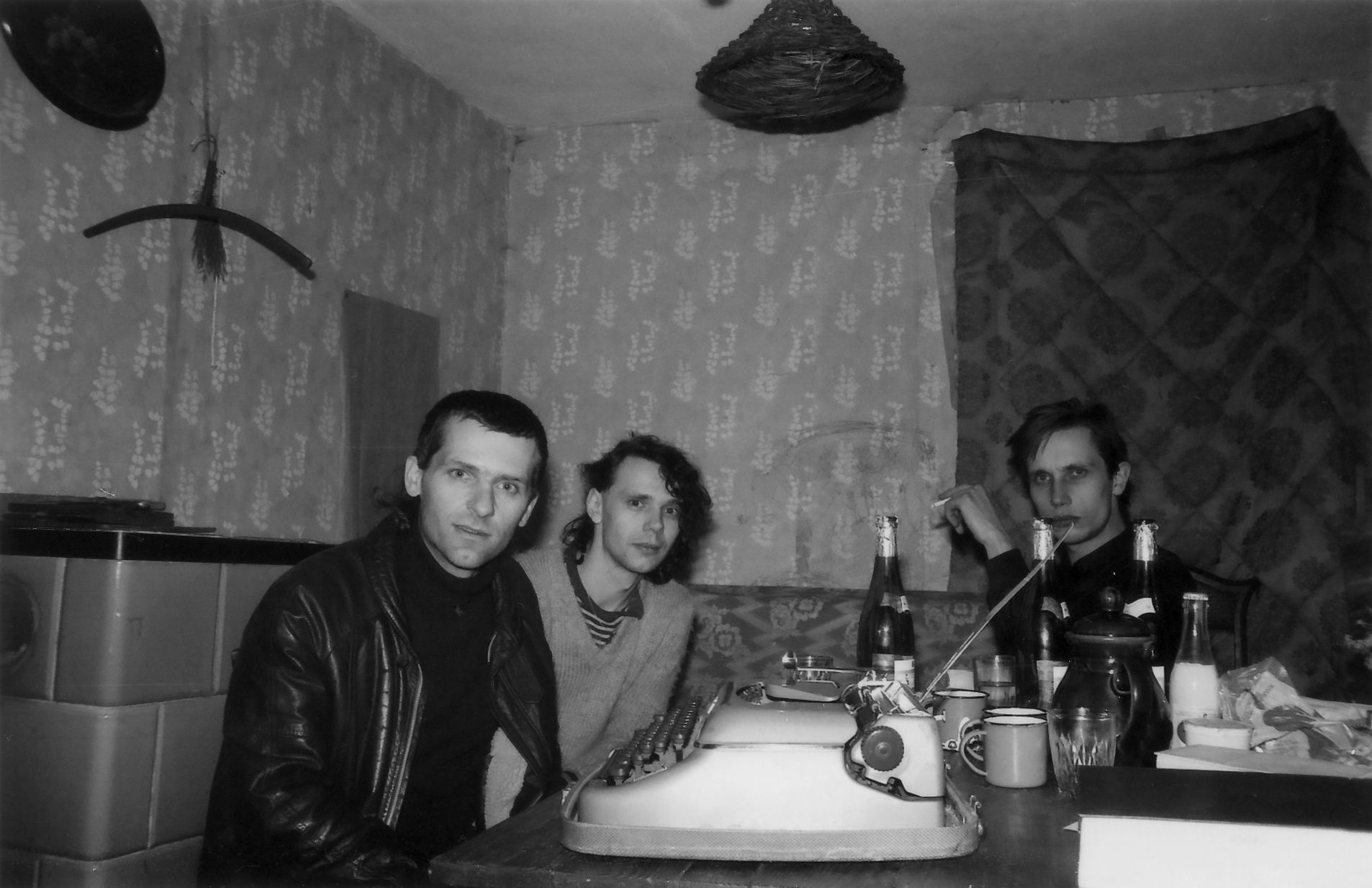Since the early 2000s, The Literature Archives of the Academy of Arts has added collections relating to the independent literary scene of the GDR to its holdings. The most important of these came in 2006, when the first part of the pre-mortem bequest of the author and publisher Gerhard Wolf was received. This acquisition includes valuable, unofficially produced artist’s books as well as background material relating to the influential series “Out of Order” ("Außer der Reihe"; 1988-1991) which Wolf created. The pre-mortem bequest and the artistic correspondences of Jan Faktor form a collection that also belong among that of Wolf. For this reason Jan Faktor, as well as the poet Bert Papenfuß and other, comparably young authors, have made their records and personal archives available to the Literature Archives already during their lifetimes.
Jan Faktor, a Czech national, moved with his family from Czechoslovakia to the GDR in 1978. Although the German language was foreign to him, he gradually gained his own perspective on its usage and challenged its artistic and political conventions as well as those of the independent literary scene. Faktor’s relevance for understanding cultural resistance in the GDR lies particularly in the critical stance he assumed towards his own compatriots in the independent literary scene. He warned that the scene’s autonomy would lead to a certain kind of complacency, stifling criticism and preventing disagreements.
In 1983, Faktor published his four part “Manifest of Trivial Poetry” (Manifest der Trivialpoesie) and one year later, together with Papenfuß and Stefan Döring, another manifest “Zoro in Skorne”. He became a regular at apartment, studio and courtyard readings and he released his writings in Samizdat form. In 1989, Jan Faktor joined the New Forum (Neues Forum) and later he became an employee of the first GDR Civil Rights Movement’s weekly, The Other (Die Andere).
The Jan Faktor Archive at the Academy of Arts helps in particular to foster greater understanding of the “Prenzlauer-Berg-Connection” (Adolf Endler). The “Prenzlauer-Berg-Connection” developed a literary style in the 1980s in East Berlin which has been referred to as “unofficial”, “different” and “independent”. The scene of young writers, musicians, filmmakers, painters and “Lebenskünstler” rejected publicizing their work in a traditional manner through publishing houses. Instead, readings, performances and exhibitions were organized in private apartments, studios or courtyards as a manifestation of the group’s do-it-yourself and self-help ethics. Their self-produced publications helped to foment an individual literary public.
They were oriented on the post-structuralist tendencies from France and desired to create literature which „the Stasi couldn’t understand“. These GDR authors chose consciously to write irrationally in the hopes of fomenting opposition to the SED and as an act of protest against the restrictions which the state placed on them. In their works, they wrote counter to societal norms and ‚good taste‘ by dissecting, dislocating and tearing language apart, or triumphing mistakes as in „The Poet’s Garden of Horrors“ („Dichtergarten des Grauens“ Jan Faktor). Stefan Döring, Egmont Hesse, Jan Faktor, Johannes Jansen, Uwe Kolbe, Andreas Koziol, Leonhard Lorek, Lothar Feix, Detlef Opitz, Frank-Wolf Matthies, Bert Papenfuß -Gorek, Gino Hahnemann, Cornelia Schleime, Peter Brasch, Michael Rom, and Ulrich Zieger are among the authors belonging to the connection. Sascha Anderson and Rainer Schedlinski, who were considered to be the guiding lights at the center of the scene were unmasked after the end of the GDR as unofficial collaborators of the Ministry for State Security. They were revealed to have spied extensively on members of the connection.

